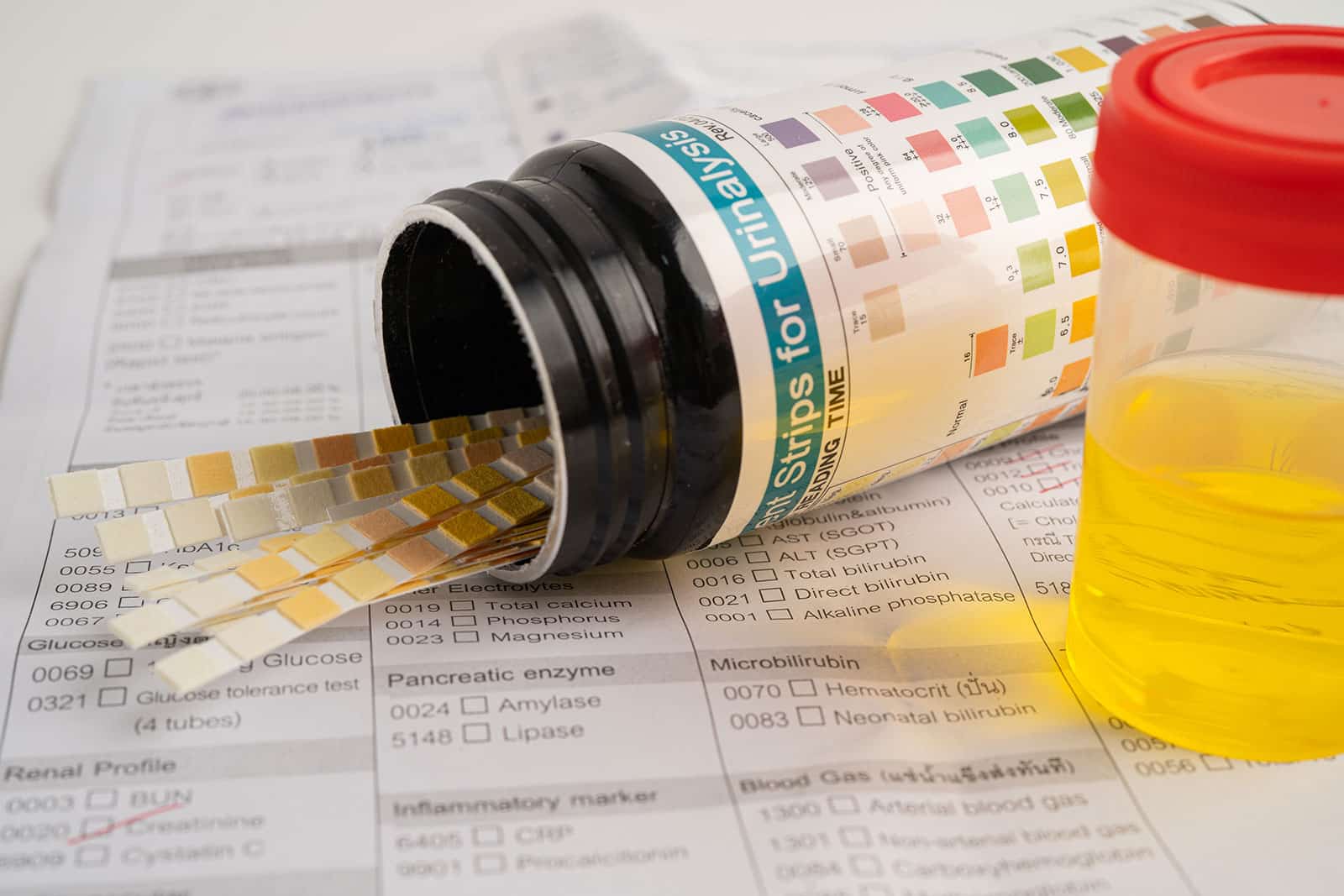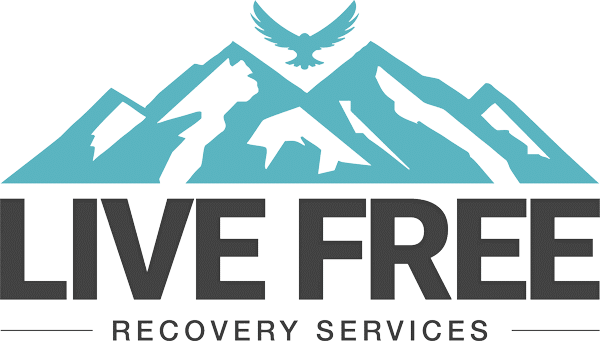
What Happens If You Fail a Drug Test?
Home » Blog » What Happens If You Fail a Drug Test?
Failing a drug test can have significant consequences for your personal and professional lives. However, the exact consequences of your actions depend on who is taking the test, what you are being tested for and whether you have a history of failed tests. Let’s take a closer look at how these factors might impact your case as well as the types of tests and why you might be subject to testing to begin with.
Table of Contents
Who is Taking the Test?
The exact consequences of a failed drug test will likely differ if you’re being tested by your employer as opposed to the judge in your drug crime case. If you fail a drug test at work, you might be subject to suspension or termination from your job. In the event that you fail a drug test in court, you could be subject to jail time, a fine or other criminal penalties. A failed drug test prior to a sporting event might result in a suspension issued by your sport’s governing body.
What Are You Being Tested For?
There are certain substances that aren’t classified as illegal drugs but may still be prohibited by your employer or a sports governing body. In some cases, illicit drugs like THC (from marijuana), amphetamines, or opiates, which are prohibited under federal law, have been decriminalized or aren’t enforced at the state level. However, if you test positive for these substances, including methamphetamines or PCP, after a workplace accident, there could still be consequences, even if your employer doesn’t monitor drug use outside of work.
Similarly, most sports leagues may not be concerned if athletes drink or use marijuana in their personal time. However, athletes could still face suspension or sanctions if they test positive for controlled substances such as amphetamines, opiates, or methamphetamines.
It’s also important to note that you could face enhanced penalties if specifically instructed to avoid certain substances. For instance, if a judge orders you to avoid THC while on probation, a positive test could be seen as disobeying the court, which is a serious offense.
Do You Have a History of Positive Tests?
The consequences for testing positive for a controlled substance may increase if you have a history of positive tests. This is because you have a track record of controlled substance use that hasn’t been curtailed by other means. For instance, a first-time offender might get away with treatment or something other than jail time or a ban from work or sports. However, a repeat offender will likely be forced to serve jail time or face a lengthy ban from work or competition.
What Types of Tests Are Conducted?
There are several testing methods used to detect the presence of drugs or alcohol. For example, a parent testing a child might opt for a hair follicle test due to its ease and affordability. However, employee drug testing, conducted by employers or state agencies, often involves urine testing or saliva tests, which are common for screening tests in the workplace. In certain cases, random drug tests may also be employed. Additionally, blood samples might be used for alcohol testing or to detect drugs like marijuana or other substances.
Why Are Drug Tests Conducted?
There are a number of valid reasons why you might be asked to take a drug test. For instance, an employer might do so because employees who are impaired may be a danger to themselves, their colleagues and customers. Employers could be held liable for damages related to an employee who was impaired at the time an accident took place.
Essentially, it’s easier to simply screen for drugs as a condition of employment or at random intervals than to assume liability. Employers might also conduct drug tests because hiring or employing those who are impaired may be bad for their brand image.
The government will generally test for drugs primarily because it’s against the law to be impaired while in public. It is also generally against the law to drive or take other actions while impaired. Therefore, testing is done to determine if drugs or alcohol led to a wreck or other criminal activity.
If you were impaired while driving or while in commission of other crimes, you might face both civil and criminal penalties. Penalties might also be enhanced in cases where you used or possessed a firearm while under the influence of drugs or alcohol.
Finally, sports organizations may test for drugs because they can provide athletes with an unfair advantage. If you were using a steroid that allowed you to run faster, throw farther or otherwise perform to an unnatural level, it could call the integrity of the sport into question.
Your Rights After Failing a Test
You may have the right to appeal a positive drug test on several different grounds. For instance, you may claim that a sample was mislabeled or that it wasn’t handled properly. This might call into question whether you actually engaged in illegal activity or if the result was a false positive.
You may also claim that there were no grounds to take the test to begin with. If a police officer took your blood, urine or hair without permission, a positive test result might be ruled inadmissible.
Often, multiple samples are taken to minimize the risk of a false positive. However, there are scenarios in which one sample yields a positive result and the other yields a negative result. Therefore, it may be possible to overturn a failed test by asking for a second sample to be tested or simply claim that it can’t be determined if you used a controlled substance because of the conflicting results.
If You Have a Valid Reason to Use a Controlled Substance
Let’s say that you tested positive for marijuana but have a medical marijuana card valid in the state where the test was taken. In such a scenario, the results of a failed test may be null because you have the right to use the substance.
Of course, that would still depend on who was taking the test and for what purpose. If a judge ordered you to take a test, a positive result may be negated by the presence of a lawful reason for using. However, your employer might still be able to disqualify you from a job if you’re under the influence for any reason.
Sports leagues may also disqualify you if a legal controlled substance has performance enhancing capabilities. In some cases, you could face repercussions from using the wrong kind of nasal spray or over-the-counter medication to fight a cold or an allergic reaction.
Rehab Might Be a Possible Solution
Depending on the specifics of your case, you may be offered the opportunity to attend rehab in lieu of losing your job or going to jail. Rehab may be ideal for those who are intent on overcoming their addiction or who simply want the resources needed to maintain their sobriety.
Inpatient programs are often best for those who have relapsed or who need help detoxing for the first time. They are also ideal for people who want to get away from the temptations of the outside world and simply focus on themselves. These types of programs typically last for about 30 to 90 days depending on your exact needs.
Outpatient programs are ideal for those who simply need help staying accountable to themselves. These types of programs often involve regular meetings at schools and churches where you can talk to others who are trying to maintain their sobriety.
Outpatient programs can also be a good resource for people who need to take medication as part of their treatment plan. Finally, outpatient care can be preferable to inpatient care if you need or want to work or have other obligations that can’t be pushed to the side while seeking treatment. Often, an outpatient program lasts for the rest of your life as you can never truly beat an addiction on your own.
Whether you are required to go to rehab or are going voluntarily, it can be a great way to achieve a sober lifestyle. The team at Live Free Recovery Services offer a number of resources to help you recover both mentally and physically from a drug or alcohol addiction. You can get in touch with us by phone or online to learn more about our services or to enroll in our program today.
FAQ
Does Failing a Drug Test Go on Record?
Yes, failing a drug test can go on record depending on the circumstances. In jobs regulated by the Department of Transportation (DOT), failed drug test results are recorded in the Clearinghouse database. In other industries, failed tests may be recorded in your personnel file or impact future background checks, especially if it’s related to a pre-employment drug test.
What Happens if You Say No to a Drug Test?
Refusing a drug test can be treated the same as a failed test under many workplace testing policies. In DOT-regulated positions, refusal is reported to the Clearinghouse and could result in immediate disqualification from safety-sensitive duties. For non-regulated jobs, refusal could lead to losing a job offer or termination, depending on company policy.
What Happens If You Fail a Drug Test?
Failing a pre-employment drug test usually leads to the withdrawal of the job offer. Depending on company policy, you may be allowed to reapply after a certain period or required to participate in a rehabilitation program before being reconsidered. In some industries, the failed test may be flagged in future background checks, potentially affecting future employment opportunities.
At work, the consequences of failing a drug test depend on the company’s testing policy. These can range from termination to participation in a return-to-duty process, especially for DOT-regulated roles. In such cases, employees may also be subjected to follow-up testing or random drug screening as part of the reinstatement process.
For DOT-regulated positions, failed drug tests can remain on record for up to five years in the Clearinghouse. In other industries, failed tests stay on record for as long as company policy dictates. A failed pre-employment drug screen may not be shared externally but could influence future hiring within the same company.
If you believe a failed test was inaccurate, you can dispute it by requesting a second test of the same urine sample or using a different screening method, such as a hair test or blood test. Collaborating with a Medical Review Officer (MRO) is essential, particularly if prescription medications or supplements might have caused a false positive.
In some cases, you may request a retest, particularly if the initial results were disputed due to supplements or prescription drugs. Many companies and the DOT offer procedures for a retest to ensure accuracy.
Published on: 2024-08-17
Updated on: 2024-12-05
Category: Blog
